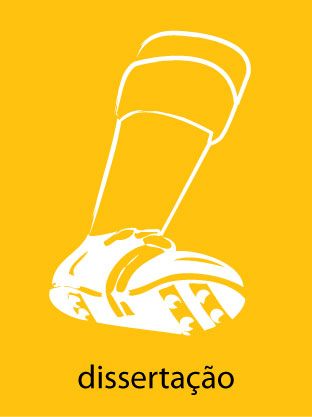A presente dissertação propõe-se a analisar a estratégia de marketing adotada por clubes de futebol no Brasil, compará-las às melhores práticas do mercado e entender como aspectos culturais interferem nos negócios e no marketing. Brasil e Alemanha são nações onde o futebol além de ser o esporte número um, também é uma verdadeira paixão. Enquanto o futebol alemão é considerado como o maior caso de sucesso do mundo, no Brasil o desafio é entender o atual cenário e os motivos pelos quais existem enormes dificuldades para transformar esta paixão em um negócio lucrativo e sustentável. Em ambos países praticamente o total da população ou é fã declarado ou acompanha futebol. No Brasil, a despeito do potencial, a indústria é deficitária para seus maiores atores: os clubes de futebol. A realidade do futebol alemão é apresentada como exemplo de negócio sustentável para os clubes. O profissionalismo, com a aplicação de melhores práticas gerenciais e de marketing nesta indústria, é visto como uma ferramenta necessária para a mudança de realidade e até mesmo para a sobrevivência dos clubes brasileiros. É preciso, contudo, levar em consideração as diferenças culturais existentes. Somente então será possível desenvolver uma ação baseada na adaptação de estratégias bem sucedidas na Alemanha, que auxilie os clubes brasileiros a obter melhor rendimento dentro e fora do campo. A indústria do futebol brasileiro está repleta de traços culturais que impedem o desenvolvimento do negócio. Os princípios mais básicos de administração corporativa não são seguidos, e aqueles que tentam alterar o status quo encontram muitas dificuldades no caminho. Inclusive a relação junto aos principais interlocutores dos times é baseada em características culturais de cada relacionamento específico, e não em por interesses comerciais. Esta dissertação trata conceitos tradicionais de estratégia e administração, em conjunto com marketing esportivo e a indústria do futebol para propiciar uma análise das práticas no Brasil e na Alemanha, e como os aspectos culturais nestas duas nações afeta a estratégia geral de marketing dos times de futebol. É visto que não obstante as fortes diferenças culturais entre as duas sociedades, indústrias e atores, existem diversas oportunidades para o intercâmbio de boas práticas e melhorias em desempenho. Os casos analisados revelam algumas similaridades e muitas diferenças, sobre as quais um olhar criterioso sobre ações e resultados, simultaneamente a uma adaptação a cultura local, é capaz de gerar enormes benefícios. O maior desafio é se afastar dos traços culturais enraizados na sociedade e nas instituições e avançar em direção a uma administração cada vez mais profissional. Inexiste razão para um clube brasileiro, no que tange a organização interna, ter performance inferior a outros de quaisquer localidade, mesmo que a estrutura jogue contra. É um processo de mudança que deve iniciar de dentro dos clubes, restando claro que é possível existir um clube de futebol no Brasil profissional e de sucesso.
Palavras-chaves: Estratégia de Marketing; Diferenças Culturais; Marketing Esportivo; Indústria do Futebol Brasileiro; Adaptação Cultural; Estudo de Casos Múltiplos; C.R. do Flamengo; FC Bayern de Munique.


